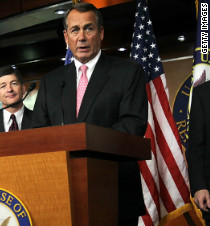
Though lobbyists might have a unpleasant reputation for operating in the shadows or contributing to the corruption in Washington, their existence or participation in the governing process is not inherently harmful. Interests represented by lobbyists can range from special treatment of building depreciation for tax purposes or expanding drilling rights in the Alaskan tundra. Thus, lobbyists are hired by politicians or political organizations who hope to persuade people with political power to represent their best interests. In American politics, while voters elect representatives to vote on bills, it does not require a representative to be an expert in any given policy area. If the members of Congress knew that their ability to govern in their current position was limited to a set number of terms, it may push them to be more willing to collaborate on bipartisan legislation, increasing the number of introduced bills that would likely get a vote, and hopefully producing better outcomes for the American people.
Gridlock in congress full#
Despite passing a few important pieces of legislation such as the notable and contended Tax Cuts and Jobs Act of 2017, making significant changes to the tax code, and the Department of Defense and Labor, Health and Human Services, and Education Appropriations Act of 2019, addressing the opioid crisis through providing funding, Congress still falls short of operating to its full potential. This redners the legislative session ‘cooperative’ in the sense that bills were passed with the support of both parties but failed to truly demonstrate what a group committed to working together looks like. It should then be no surprise that Congress had the highest level of cross-aisle cooperation without much being accomplished. Increased cooperation in Congress would benefit the American people by reducing bipartisanship in the government and increasing the likelihood of Congress passing legislation that would enact substantive change. Limiting the number of times representatives can run for Congress could work to motivate them to work on bills that might actually get passed. In a divided congress, we would either witness a larger number of votes on bills or have fewer bills introduced because there would be less ‘positioning’ for the next election on how bills are treated by the party with control of the Senate or House. In total, only three percent of all bills introduced were passed and six percent of which were voted upon. The vast majority of the bills passed were procedural in nature which mostly sought to “rename buildings, award medals, designate special days”, and other non-substantive changes to government policy. In reality, however, this was not the case. This supposed increase in cooperation across the aisle might indicate that despite seeing very little turnover in representatives, Congress can still function.

The 115th Congress had the highest level of bipartisanship when compared to the past twenty years of Congress in which 68 percent of all enacted bills received bipartisan support. America is not a country that is bound by a set of laws but rather the idea to promote “life, liberty, and pursuit of happiness” for all that may reside within its borders, and sometimes the laws need to change in order to more effectively address the core principles. While the present-day United States recognizes this error, citizens should open their eyes to the distinct possibility of overlooked wrongdoings in underpinning documents and ideas which governs their country. By doing so, the founding fathers used the growing slave population to their advantage by counting them in the population of the state thus giving the state more power, while also ensuring that slaves were not considered people and guaranteed rights. The founding fathers at the Constitutional Convention in 1787 decided that counting enslaved persons as three-fifths of a person in the population-based apportionment of Congressional seats was the “constitutional” way to conduct votes. While that ruling meant that Congressional term limits on the state level for federal office are unconstitutional, that does not necessarily mean they would be harmful to America or the principles that it represents.

Thornton (1995) in which the Supreme Court declared that states instituting term limits on their Congressional representatives functionally acted to change the constitutionally prescribed requirements to be a Congressional representative, which states are not permitted to do any more than they are permitted to change citizenship requirements. The most recent and direct case that addresses this is US Term Limits V. Without a forced turnover and the many advantages conferred upon incumbents challengers are almost certain to lose in an election. Congress, however, faces no such limits on the time that a legislator can serve in office.


 0 kommentar(er)
0 kommentar(er)
